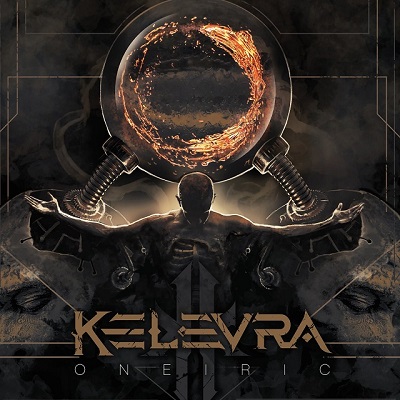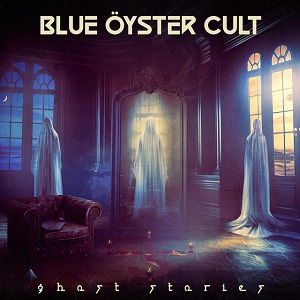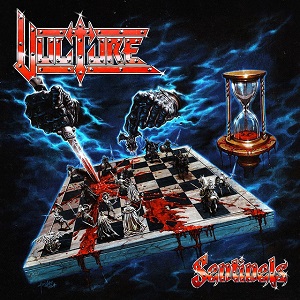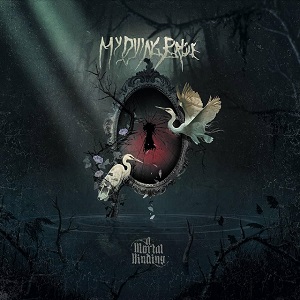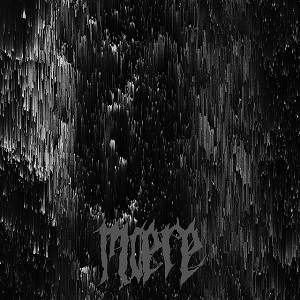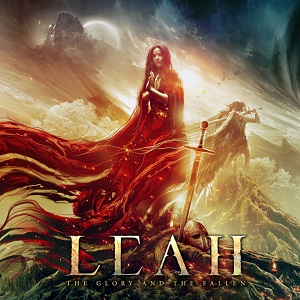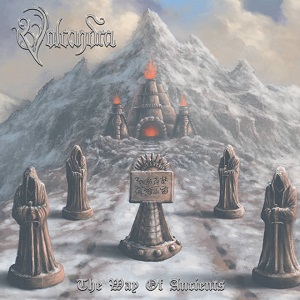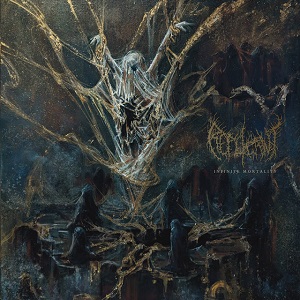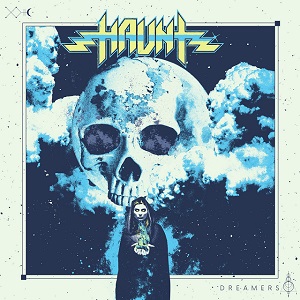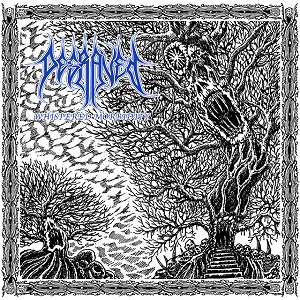GORGUTS' Luc Lemay - "I Don't Write Music To Scare People …"
August 1, 2013, 10 years ago
By Greg Pratt
So here we are, legendary Quebec death metal crew GORGUTS about to release their first album in 12 years, the band on the third of a three-album run that shows them breaking completely new ground in death metal, taking the genre to places so expressive and compelling that it sounds almost alien. Here we are, that happening, and I'm bugging guitarist/vocalist/mainman Luc Lemay about the album title, Colored Sands, having a US, not a Canadian spelling.

"I think my mission is accomplished as a composer if I'm touching peoples' hearts like this in metal," says Lemay. "I couldn't be more happy."
Touching hearts? Happiness? Is this not death metal? Well, it is (listen to the new album: this is death metal and it gets no heavier than this), but it's Gorguts' particular strain of DM, which places emphasis on evocation, on mood, on feeling.
"I don't write music to scare people or whatever," says Lemay. "I write music so I can touch people's hearts and make people feel something. That's what art is all about, fundamentally. Either painting, poetry, or whatever, even if it's death metal. I don't like seeing it squeezed with all the cliche images and everything, because I think even if the album deals with Tibet and everything, I don't think it lacks heaviness or the feeling of dark, dark music and epic music. I think it's even heavier than [last album] From Wisdom To Hate. So, yeah, touching people, I'm not afraid of using Gorguts' work, because I think if people are enthusiastic about what they're listening to, it's because you're touching them in some way. You make people feel emotion."
The album hits so heavily thanks to the lineup, consisting of an entire new batch of players backing up Lemay. But this doesn't sound like a bunch of session musicians tossed together or Lemay leading hired guns down his path and his path only. It sounds like chemistry, maybe because the dudes involved are so seasoned: Colin Marston (BEHOLD THE ARCTOPUS, DYSRHYTHMIA, KRALLICE) on bass, Kevin Hufnagel (also of DYSRHYTHMIA) on guitar, and the mighty kit-pounder John Longstreth (DIM MAK, ORIGIN). So, yeah, chemistry with Lemay's vision leading the way, although he's quick to point out this is no dictatorship.
"I completely gave them a clean slate for the arrangement," says Lemay. "There's no sense in having collaborators if I'm going to tell them what to do. Of course, if one of them did something that I thought would really not work in the music, I'm going to say my opinion, but that wasn't the case. They just nailed it."The album was actually recorded a couple of years ago (!) and has sat dormant while Lemay figured out the legal complications of bringing Gorguts back from the grave. Because he signed his last contract over ten years ago, at a time when he now confesses he thought he'd never play music under the Gorguts name again after former drummer Steve MacDonald committed suicide in 2002, he wanted to go over the papers again. However, the label he was signed to at the time, Olympic Records, had been bought out by Century Media. Lemay and his new bosses didn't see eye to eye, so he was released from that contract and went and found a new home at Season Of Mist. Only takes a few sentences on paper, but took months and months and months in reality, a process that Lemay admits was frustrating.
"Very, very, very," he says. "Because at some point you're very far from sitting down with your guitar and coming up with a riff. But also it's a very important part of the process as well."
But now that's all in the past, and the band has a huge-sounding album under their belt, one that boasts lyrical themes as big as the expansive death metal soundscapes found within, as Lemay has crafted an album dealing with Tibetans, sand mandalas, the Dalai Lama, China and Tibet, causality, the Chinese invasion of 1950, public immolations, and more... although he also wants to be clear that he's not trying to make a political statement.
"I was very cautious to not point the finger at the Chinese people," he says. "I didn't want to be political with the record, I didn't want to be saying 'Don't buy China' or this or that, that's not my point of view at all. I like more the point of view of, 'Okay, listeners, come here, I have a story to tell,' and from there you choose what you feel yourself. I chose a topic that shocked me and amazed me as a person."Shocking and amazing, all in a day's work for Gorguts, whose latest collection of tunes is completely shocking and amazing, an album that makes this scribe feel like he's floating, escaping, at peace when he's listening to the completely one-of-a-kind songs enclosed within the beautiful artwork, the whole package far too elegant and moving to simply be called "technical death metal," but as mere humans, what can we do? For me, it all comes back to this strange skill Lemay has for incorporation such emotion and feeling into such heavy and technical music, even if he doesn't totally agree with me that death metal in general skirts around dealing with emotions.
"You saying death metal doesn't bring emotion... the spectrum of emotion is so wide," he says. "Maybe you're not going to feel the same way if you listen to our music or listen to HATE ETERNAL or ORIGIN, which are very intense music but a different emotion. With us, maybe it's in a different spectrum of emotion. I see our music like a landscape. It's like a soundtrack; since I've waited since all the music was written before I even work on the lyrics, I was very used to listening to this album instrumentally and I think it would have still worked without the vocals. So maybe, yeah, we touch a different spectrum of emotion maybe because of that in our music. I think it's very picturesque and very descriptive."
And the end result of all of this talk is that, really, Lemay is a death metal legend, the man responsible for both two solid chunks of no-frills death metal in DM's early-'90s heyday and then three brain-expanding declarations of how far death metal can go into the beyond, without any of the look-at-this quirkiness that seems forced in so many bands that try to push extreme music's envelope. Still, the legend tag is one he downplays.
"I don't pay much attention to those things," he says. "I find it very flattering. This is a very flattering compliment. But I never did this for those types of reasons. Mainly I do this to express myself as an artist and I really love the metal way to express myself as an artist. I've never been into this type of art expression for any titles (laughs). I need to be happy with what I'm doing as an individual. I'm a very curious-natured person. That's what's fun about creation, you pick up something you don't know, it's a win-win thing, makes you happy to create something, makes you happy to learn something. That's what drives me."
